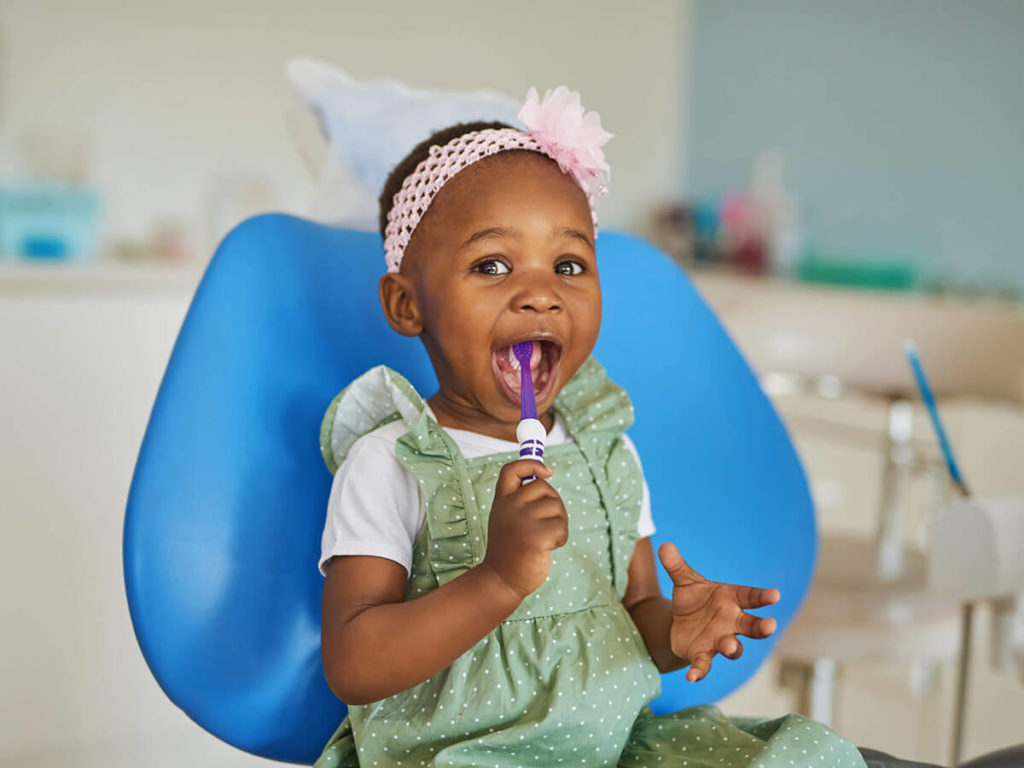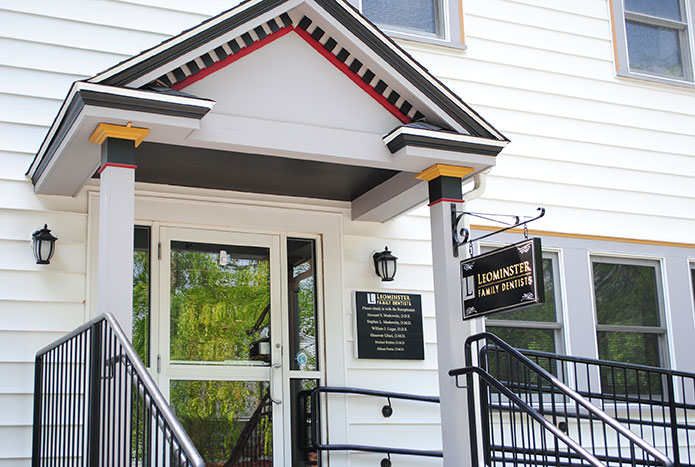Pediatric Dentistry
Receiving high-quality dental treatment is just as important for children as it is for adults. We take great pride in helping our younger patients achieve excellent oral health and pediatric dental services in the Leominster community.
Dental Care for Kids
At Leominster Family Dentists, we take great pleasure in caring for your child’s oral health from the very first tooth. Our pediatric dentistry services are specifically designed to provide comprehensive dental care in a warm, cheerful, and child-friendly environment. Our goal is to make dental health a fun and positive experience for children of all ages, which will help them maintain healthy smiles for life.
Our Pediatric Services
We cater to the unique needs of children from infancy through their teenage years. Here are some of the specialized services we offer:
- Routine Dental Checkups: Regular examinations to monitor the development of your child’s teeth and to catch potential issues early.
- Preventative Treatments: Cleaning, fluoride treatments, and dental sealants to protect against cavities.
- Nutrition and Habit Counseling: Guidance on food choices and habits like thumb sucking that can impact your child’s dental health.
- Orthodontic Evaluation: Early assessments to determine if orthodontic treatment may be needed to correct misaligned teeth or jaw problems.
- Tooth-Colored Fillings and Crowns: Durable, natural-looking restorations for decayed or damaged teeth.
- Emergency Dental Care: Prompt treatment for dental emergencies such as toothaches, broken teeth, or sports injuries.
Our pediatric dentist, Dr. Michael Richler, provides dental care for children at Leominster Family Dentists and works to ensure each child has a positive experience at the dentist. Our staff is trained to explain procedures in a simple, understandable manner, helping to alleviate any fear or anxiety your child may feel.

-
What are the common issues of dental health in children?
Dental health problems that affect kids are similar to those affecting adults. Common oral health issues for kids include:
- Baby teeth-loss
- Bruxism (teeth grinding)
- Over-retained primary teeth (shark teeth)
- Thumb-sucking
- Tooth decay
- Sensitive teeth
- Gum disease
- Dental anxiety
Because children’s teeth are continually developing, if an issue goes untreated it can lead to long-term oral health issues, such as gum disease or misaligned bite which would require a more intense orthodontic treatment.
-
How should I care for my baby's teeth?
Care for baby teeth should begin as soon as the first tooth appears. We recommend that you bring your child in for an exam no later than his or her first birthday. And regular six-month checkups from then on will put kids on a similar schedule to most adults. We can monitor your child for dental problems while customizing preventive coaching to fit specific conditions.
As a parent, some early steps can help guard your child against tooth decay, even before the first dental visit:
- Your baby’s teeth should always be flushed with water or wiped down with a damp cloth after feeding, especially before they fall asleep. Milk or formula residue left in the mouth can promote decay even in the youngest patients. Untreated cavities can eventually lead to pain and infection.
- Try to wean your child off breastfeeding or bottled milk by age one year. This effort helps avoid decay and minimizes the chance of jaw growth problems from excessive sucking.
- Begin brushing as soon as the first tooth appears. Even a small piece of tooth showing can develop a cavity. Start by brushing with a soft-bristled brush and water, and ask your dentist when it’s ok to begin using a small amount of toothpaste.
- Once your child is old enough to begin brushing on his or her own, continue to monitor their brushing, going back to clean any areas they may have missed.
- Don’t give bottles of sugary drinks or milk before bedtime.
- Use a straw with sugary beverages to allow the teeth to have less contact with the liquid.
- Try to limit the overall sugary foods your child eats and drinks.
-
What is pulp therapy?
If your child starts to complain about sensitivity or constant pain, or if the tissue around a tooth is swollen and painful, they may have pulp damage. Damage to the interior living part of the tooth can occur because of trauma, decay, or other infection. The ‘pulp’ refers to the live part of the tooth.
If the pulp is damaged, it is important to retain as much of the living pulp as possible, while also treating the infection or removing any damaged sections. One way we do this is with a pulpotomy.
A pulpotomy can be performed if the pulp root is unaffected, and just the tip of the pulp is damaged. If the root is healthy we will remove all the decay and then place material over the remaining pulp to protect it. Finally, we will place a crown. By saving the pulp, your child has a greater chance of producing a healthy adult tooth.
A pulpectomy is performed if the damage has extended into the tooth root, we will need to remove all of the living material and fill the space — just like an adult root canal. We will place a crown to help with spacing when the adult tooth is ready to come in.
-
Why choose us for your child’s dental needs?
- Specialized Pediatric Training: Our dentists have extensive training in pediatric dentistry and are skilled in caring for children with various needs.
- Focus on Prevention: We emphasize preventive care and education to help avoid dental issues such as cavities and gum disease.
- A Positive Atmosphere: We strive to create positive experiences to help children feel excited about dental care, potentially reducing fear and anxiety.
- Engagement with Children: We believe in engaging with each child, teaching them the importance of good dental hygiene in a fun and interactive way.
-
How do I prepare for my child's first visit?
To make your child’s visit as smooth as possible, here are a few tips:
- Talk About Dentistry Positively: Prepare your child for their visit by talking about the dentist positively beforehand, avoiding any scary language.
- Bring Comfort Items: Feel free to bring along any comfort items—like a favorite toy or blanket—that will make your child feel more at home.
- Discuss Any Fears: If your child is anxious, discuss their fears with us before the appointment so we can tailor our approach to their comfort level.
Schedule Your Child’s Visit Today
Ready to give your child a head start on a lifetime of healthy smiles? Contact Leominster Family Dentists to schedule an appointment. Our team is excited to welcome your family!

